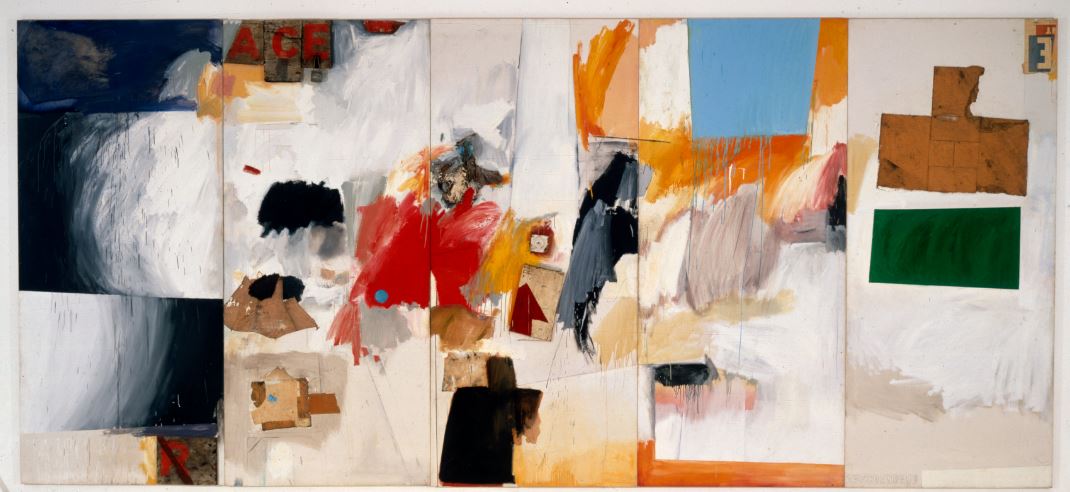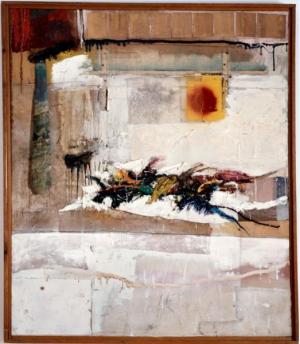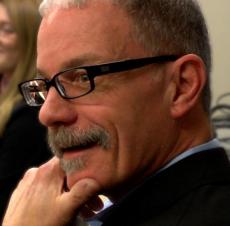“This and That and This, Too: Musings on Collage and ‘Leaving St. Francis Hospital, the Poems of My Wife’s Back Pockets Idle’

The poetic line has never seemed enough to me. No matter how expansive, no matter how musically chiming, no matter how taut, how redolent of lacunae and the presence all that emptiness delivers.
I want the song and the swaying backup singers. I want the painting and its artist of flesh and oils. I want the feathers, the nest, the sidewalk’s cracked eggshell as well as the woman who tracks her eye from ground to tree to nesting-bird-minus-one beneath its folded wings.
Should’ve been a sculptor, you’d say. Should’ve painted and danced and scribbled all at once Black Mountain style. Should’ve played the piano with one hand and dribbled paint upon the page with the other. Yes, and always. No, and probably.
Like most writers and artists, I want more of everything. And I want less – and more of that, too.
That’s why I’m drawn to Robert Rauschenberg’s contrarian insistence on Cuisinarting artistic mediums others prefer served in separate dishes. Rauschenberg is the happy child at the dinner table scooping peas onto his mashed potatoes topped off with a maple leaf pocketed on his dusk walk home. His "Combine" paintings relish dialogue among various aesthetic mediums, dialogue between what’s handmade by the artist and what the larger world offers up as ready-made pap. Say, brushstrokes and JFK’s newspaper photograph. The topography of his rumpled bed quilt landscaping the canvas’s flat plane. A man’s necktie stitched into the painting “Rhyme” so sound and surface hold hands in dance.
We writers recognize the throes of taking on the “big” subject that seems at once apt but overreaching: a midnight epiphany beneath the full moon. The thorny rose of gender, race and class. Your spouse’s sudden illness.
What to do when handcuffed by silence or by despair, its blabbermouth cousin? For me, the collage poem – in the manner of Rauschenberg’s "Combines" – enacts and thus embodies both frustration and surprise intrinsic to the writing process. Like the vexed speaker’s “All right. Try this / Then,” opening James Wright’s “Northern Pike,” the poet throws paint, word, and sound, against the poem’s wall to see what sticks. What joy there is in trying this and that and this too. Let metaphor boast A is B and C and D and so on. With glint and nod, let simile wink A is like E, F, and Z. Flush with risk, let nothing fall bland upon the tongue and ear.
The realm of the page and our earth's flux blend an alphabet of uncertainty disguised as certainty, trench coat the poet opens for all to glimpse the intimate. What joy in accrual as approximation, a tottering Dagwood sandwich to be relished in one big bite of pleasure and precipitous awareness.
Artwork provided by the Robert Rauschenburg Foundation
Recommended
Nor’easter
Post-Op Appointment With My Father
Cedar Valley Youth Poet Laureate | Fall 2024 Workshop






